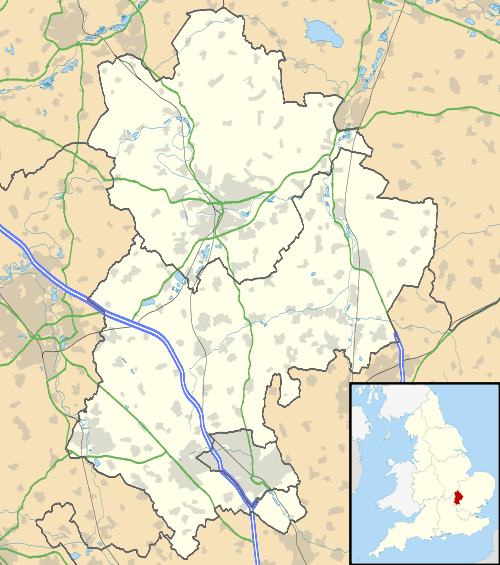Flitton
| Flitton | |
|---|---|
 Flitton | |
 Flitton | |
| Flitton shown within Bedfordshire | |
| OS grid reference | TL058363 |
| Civil parish | |
| Unitary authority | |
| Ceremonial county | |
| Region | |
| Country | England |
| Sovereign state | United Kingdom |
| Post town | BEDFORD |
| Postcode district | MK45 |
| Dialling code | 01525 |
| Police | Bedfordshire |
| Fire | Bedfordshire and Luton |
| Ambulance | East of England |
| EU Parliament | East of England |
| UK Parliament | |
Flitton (Flichtam, Fllite, Flute) is a small village in Bedfordshire, England which forms part of the parish of Flitton and Greenfield. The village derives its name from river Flit which flows close by it. It is notable primarily as the home of the De Grey Mausoleum adjacent to St John the Baptist church. Richard Milward, the editor of Selden’s Table Talk was born at Flitton in 1609. There are two pubs, The White Hart by the church hall and Jolly Coopers at Wardhedges.
Church of St John the Baptist
The church, which stands on a slight mound on the west side of the village, was probably built by Edmund Grey, Earl of Kent (1465), between 1440 and 1489. It has a 27-foot (8.2 m) chancel, nave 39 feet (12 m) long with aisles, south porch and west three-stage tower with a projecting rood stair turret; the whole appears to be one built in local ironstone, embattled. On the walls of the north aisle are three fragmentary brasses commemorating: Eleanor Conquest (1434), Elizabeth, wife of Thomas Waren (1544) and Alice, wife of Reginald Hill (1594).
There are six bells, (five dated 1902 and one 1904) by Bowell of Ipswich; they replaced five of 1687 by Richard Chandler of Drayton Parslow.
The natural philosopher George Hadley (1685–1768) is buried in the chancel.
See also
References
- Page, William, editor: The Victoria History of the Counties of England: Bedfordshire, University of London, Dawsons, London 1972, pp 325–332
- Pevsner, Nikolaus: The Buildings of England: Bedfordshire, Huntingdon and Peterborough, Penguin Books, London 1968